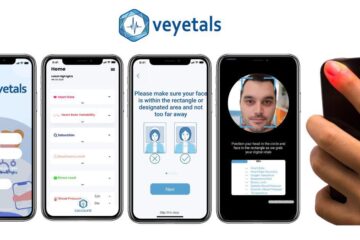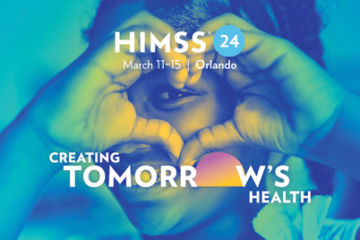Medically Reviewed By:
Key Takeaways
- Paradigm Shift in Palliative Care: The development of Remote Patient Monitoring (RPM) tools, especially those leveraging technologies like remote photoplethysmography (rPPG) and vital signs apps, is transforming palliative care. The concept of “hospital at home” is gaining traction, enabling patients to receive compassionate care in the comfort of their homes.
- Holistic Approach to Care: Beyond physical health, RPM tools support a holistic approach to palliative care by considering emotional, spiritual, and cultural aspects. Care plans can be tailored to respect patients’ cultural and spiritual beliefs, fostering a more personalized and sensitive healthcare experience.
- Future Technological Innovations: Ongoing developments in technologies like AI and machine learning promise more sophisticated monitoring and analysis of patient health data. The future of RPM in palliative care looks bright, with the potential to further enhance the quality of life for patients.
- Empowerment and Peace: RPM tools not only improve the care provided to patients in their last days but also bring a sense of empowerment and peace to both patients and their families. By virtually bringing the hospital to the patient’s doorstep, RPM enables patients to spend their final days in a familiar and comforting environment surrounded by loved ones.
Learn more with Veyetals…
The development of Remote Patient Monitoring (RPM) tools is proving to be nothing short of a paradigm shifting upheaval, especially in the context of palliative care and end-of-life support. The concept of “hospital at home” is gaining traction, thanks to these technological advancements. This blog explores how RPM tools, particularly those leveraging remote photoplethysmography (rPPG) and vital signs apps, are transforming the way palliative care is delivered, ensuring patients receive compassionate care in the comfort of their homes.
The Emergence of RPM in Palliative Care
Palliative care, aimed at providing relief from the symptoms and stress of a serious illness, is an integral part of patient-centered healthcare. The introduction of RPM tools in this sector marks a significant milestone, ensuring that patients with life-limiting illnesses receive the best possible care while continuing to spend their last days and months in familiar surroundings.
Real-Time Vital Monitoring: A New Paradigm
Central to the success of the attempt at this transformation is the ability of the solution to monitor vital signs in real-time. Technologies like rPPG and various vital signs apps have made it possible to track a patient’s health parameters – such as heart rate, blood pressure, and oxygen saturation – continuously and non-invasively. Prickless glucose monitors and rPPG technology simplify diabetes management, a common concern in palliative care, without the discomfort of regular finger-pricking.
The Convenience of Vitals Apps
Vitals apps have emerged as a definite blessing for families and caregivers, offering easy and quick access to the patient’s health data. This ease of access ensures that family members are constantly updated, facilitating timely medical interventions when necessary.
The Holistic Approach: Beyond Physical Health
An essential aspect of palliative care is its holistic nature, addressing not just the physical symptoms but also considering the emotional, spiritual, and cultural aspects of patient care. RPM tools aid in creating care plans that respect the patient’s cultural and spiritual beliefs. For instance, contactless patient monitoring systems allow for non-intrusive care, aligning with certain cultural sensitivities around physical touch or privacy.
Flexible Care Plans with RPM
With RPM, care plans can be more dynamic and adaptable to the changing needs of the patient. This flexibility is crucial in palliative care, where the condition of a patient on a care pathway often fluctuates frequently and unexpectedly.
Enhancing Communication with Families
One of the most significant advantages of RPM in palliative care is the improved communication it facilitates between healthcare providers, patients, and their families. Through apps and monitoring tools, families can receive real-time updates about their loved one’s condition, developing a sense of involvement and reassurance and enabling some degree of control in critical decisions, especially towards the very end.
The Role of Free Vital Signs Apps
The availability of free vital signs apps plays a critical role in democratizing access to healthcare information, making it possible for more families to stay informed about their loved ones’ health without incurring additional expenses.
RPM in Corporate Wellness Programs
The inclusion of RPM tools in corporate wellness programs reflects a growing recognition on the corporate floor of the need to support employees dealing with end-of-life care for family members. By providing access to vital monitoring tools and resources, employers can play a pivotal role in easing the emotional and logistical challenges faced by their employees during such difficult times. It sounds draconian, in that it seeks to ensure that the employee continues to come to work and monitor their ward remotely, but in the modern world where we’re all educated galley slaves, it works excellently in enabling caregivers to be able to be in continuous attendance without neglecting work.
The Future of Palliative Care with RPM
The integration of RPM tools in palliative care is more than a technological advancement; it represents an entirely different set of lenses with which to view how end-of-life care is perceived and delivered. By virtually “dragging” the hospital to the patient’s doorstep, RPM empowers patients to spend their final days in a familiar, comforting environment, surrounded by loved ones.
Technological Innovations on the Horizon
The future of RPM in palliative care is bright, with ongoing inventions and developments in technologies like AI and machine learning poised to offer even more sophisticated monitoring and analysis of patient health data.
In conclusion, RPM tools are playing a transformative role in palliative care, providing myriad benefits ranging from real-time health monitoring to the creation of holistic care plans that respect the patient’s cultural and spiritual needs. As technology continues to evolve, the RPM offers immense potential to further improve the quality of life for patients in palliative care. Not only do these tools enhance the care provided to patients in their last few days and weeks, but also bring a sense of empowerment and peace to patients and their families during what is often a challenging journey.
Learn more with Veyetals…
MarkiTech has various subsidiaries with products and services targeted towards digital healthcare, telehealth/telemedicine, and a virtual clinic with a laser focus on helping seniors age in place and help their caregivers.
Sensights.ai is a company focused on remote patient monitoring and aging solutions, which utilizes artificial intelligence to track patient’s health and keep a round-the-clock connection between caregivers and patients.
Veyetals also uses rPPG and AI modeling algorithms to measure vitals anytime, anywhere to capture the light reflected by the blood vessels under a patient’s skin.
Lastly, we have now launched our latest Mental Health AI Scribe tool called CliniScripts.com.



